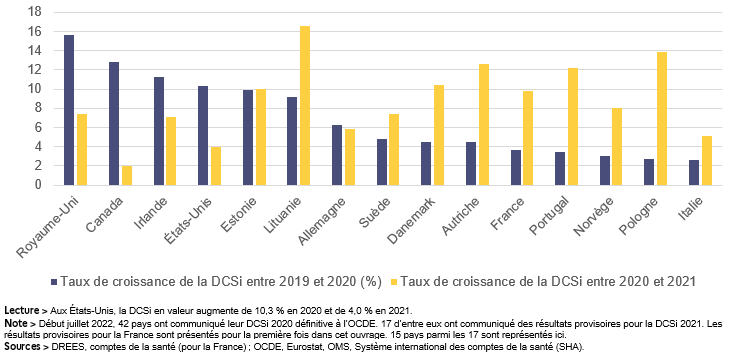Access To Birth Control: The Impact Of Over-the-Counter Availability Post-Roe

Table of Contents
Increased Access and its Benefits
Wider access to over-the-counter birth control offers significant advantages for women's health and reproductive autonomy. Two key benefits stand out: improved convenience and affordability, and enhanced privacy and confidentiality.
Improved Convenience and Affordability
Currently, obtaining birth control often involves navigating several hurdles. Appointments with healthcare providers, insurance coverage complexities, and prescription costs can create significant barriers, especially for low-income individuals and those in rural areas. Over-the-counter birth control would eliminate many of these barriers.
- Reduced healthcare costs: Eliminating doctor's visit fees and prescription costs would significantly reduce the financial burden associated with birth control. A recent study found that annual birth control costs can range from $100 to over $1000, depending on the method and insurance coverage. This financial barrier often leads to inconsistent or forgone use.
- Increased ease of access for rural populations: Many rural areas face shortages of healthcare providers, making access to prescription birth control challenging. OTC availability would democratize access, irrespective of geographical location.
- Potential for lower rates of unintended pregnancies: Improved access and affordability could lead to more consistent contraceptive use, potentially resulting in lower rates of unintended pregnancies and abortions.
Enhanced Privacy and Confidentiality
Seeking birth control often involves personal discussions with healthcare providers, which can be uncomfortable or even stigmatizing for some individuals. Over-the-counter birth control offers a discreet alternative.
- Eliminates the need for discussions with healthcare providers: Purchasing birth control OTC allows individuals to manage their reproductive health privately and independently.
- Reduces stigma associated with birth control use: Open access reduces the social stigma that can surround reproductive health choices, empowering individuals to make informed decisions without fear of judgment.
- Empowers individuals to manage their reproductive health independently: OTC access puts individuals in control of their reproductive health journey, respecting their autonomy and agency.
However, concerns exist about potential privacy violations related to OTC purchases and data collection. Addressing these issues through robust data protection laws and anonymized purchasing options is crucial.
Potential Drawbacks and Concerns
While the benefits of over-the-counter birth control are compelling, potential drawbacks and concerns must be carefully considered.
Misinformation and Improper Use
The lack of professional guidance when using OTC birth control raises concerns about potential misuse and incorrect usage.
- Importance of clear labeling and patient education: Clear, accessible information on proper usage, potential side effects, and contraindications is essential to mitigate risks.
- The role of pharmacists in providing information: Pharmacists can play a crucial role in providing guidance and answering questions, ensuring safe and effective use. Training programs for pharmacists on providing accurate information on different OTC birth control options are necessary.
- Concerns about incorrect dosage or interactions with other medications: Clear instructions and warnings are critical to prevent potential adverse effects from incorrect usage or interactions with other medications. Patient education campaigns should emphasize the importance of following instructions and seeking professional advice when needed.
Addressing these concerns requires comprehensive strategies, including targeted educational campaigns and readily accessible online resources.
Impact on Healthcare Providers
Making birth control available over-the-counter could affect the workload and services provided by healthcare professionals.
- Reduced demand for birth control prescriptions: This might free up healthcare providers' time to focus on other reproductive health services.
- Potential for increased demand for other reproductive health services: While prescription fills may decrease, demand for other reproductive health services, such as STI testing and counseling, may increase.
- Potential for shifting healthcare resources: Healthcare systems need to adapt to changing demand and resource allocation to ensure comprehensive reproductive healthcare remains accessible.
Understanding the perspectives of family planning clinics and healthcare providers is crucial in navigating this transition smoothly and ensuring equitable access to all reproductive healthcare services.
Legal and Regulatory Considerations
The legal landscape surrounding OTC birth control is complex and varies significantly across states.
State-Level Variations in Access
State laws significantly influence the availability and regulation of over-the-counter birth control.
- Differences in state regulations across the US: Some states may have more restrictive regulations than others, leading to disparities in access.
- Potential for legal challenges to OTC access: Legal challenges from opposing groups could further complicate the path towards nationwide OTC access.
- Potential impact on health equity across different states: Varied access based on state laws could exacerbate existing health inequities, disproportionately affecting underserved populations.
Understanding the nuances of state-level policies and working towards federal regulations that ensure equitable access across all states is crucial.
The Role of the FDA and other Regulatory Bodies
The FDA plays a vital role in the process of approving over-the-counter medications, including birth control.
- The FDA's role in approving OTC medications: The FDA sets stringent safety and efficacy standards for OTC medications.
- The scientific evidence required for approval: Robust clinical trials and data are needed to demonstrate the safety and effectiveness of birth control for OTC use.
- Considerations for safety and efficacy: The FDA must carefully evaluate the potential risks and benefits before approving any medication for over-the-counter sale.
Transparency in the FDA's approval process and public access to the supporting scientific data will build trust and confidence in the safety and efficacy of OTC birth control.
Access to Birth Control Post-Roe: A Path Forward
The debate surrounding over-the-counter birth control access post-Roe highlights the complex interplay between convenience, affordability, privacy, safety, and legal considerations. While wider access offers significant benefits in improving women's health and reproductive autonomy, careful consideration of potential drawbacks and robust regulatory frameworks are essential. Expanding access to over-the-counter birth control requires a multifaceted approach that prioritizes patient education, provider training, and equitable access across all states. We must ensure that increased access to birth control does not come at the cost of safety or exacerbate existing health inequalities.
Call to action: Learn more about over-the-counter birth control options in your area, contact your representatives to advocate for policies supporting increased access to post-Roe reproductive healthcare, and participate in discussions about expanding access to birth control and protecting reproductive health rights. Your voice matters in shaping the future of reproductive healthcare.

Featured Posts
-
 The Ultimate Guide To Deleting Your Online Information
Apr 23, 2025
The Ultimate Guide To Deleting Your Online Information
Apr 23, 2025 -
 Trumps Trade War Imf Warns Of Systemic Financial Risk
Apr 23, 2025
Trumps Trade War Imf Warns Of Systemic Financial Risk
Apr 23, 2025 -
 Equifax Efx Surpasses Profit Expectations Holds Steady On Economic Outlook
Apr 23, 2025
Equifax Efx Surpasses Profit Expectations Holds Steady On Economic Outlook
Apr 23, 2025 -
 Izmir De Okullar Tatil Oldu Mu 24 Subat Pazartesi Guencel Bilgi
Apr 23, 2025
Izmir De Okullar Tatil Oldu Mu 24 Subat Pazartesi Guencel Bilgi
Apr 23, 2025 -
 Montee Des Depenses De Defense Usa Vs Russie Analyse De John Plassard
Apr 23, 2025
Montee Des Depenses De Defense Usa Vs Russie Analyse De John Plassard
Apr 23, 2025
